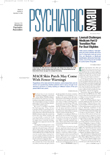Smokers taking an experimental drug in late-stage clinical trials were twice as likely to quit as those who took bupropion, the old standby for smoking-cessation treatment, according to findings presented at an American Heart Association meeting in Dallas in November.
These findings were also announced in a press release from Pfizer Inc. last month. The company makes the new drug.
In two double-blind, placebo-controlled studies conducted in the United States, about 2,000 smokers received the experimental drug, varenicline, another group received bupropion (marketed under the brand name Zyban), and a third group received placebo for a duration of 12 weeks.
Varenicline, which is manufactured by Pfizer, is a selective nicotinic acetylcholine receptor partial agonist and is designed to bind to the same receptor sites as nicotine.
In addition to relieving the craving and withdrawal symptoms associated with quitting smoking, the drug blocks the rewarding effects of nicotine.
In both studies, 44 percent of those treated with varenicline quit smoking by the end of the 12-week treatment period, while just 30 percent of those taking bupropion did. Of those taking placebo, 18 percent quit.
According to the data, the odds of quitting smoking for subjects taking varenicline were about two times higher than for those taking bupropion and four times higher than for those on placebo.
After a year, patients who received varenicline were significantly more likely to have abstained from smoking than were those who took bupropion. (The odds ratio for varenicline vs. bupropion was about 1.5).
In a third trial conducted at study sites in the United States and Europe, researchers randomized 1,206 subjects who had quit smoking after 12 weeks of varenicline treatment to another 12 weeks of either placebo or continuing treatment with varenicline.
Researchers followed the subjects for 28 weeks and found that 71 percent of those who received the additional treatment with varenicline remained abstinent after six months, compared with 50 percent who received placebo.
According to Pfizer's press release, varenicline was well tolerated in all three trials, and the side effects cited most frequently were nausea, headache, trouble sleeping, and abnormal dreams.
Pfizer submitted a new drug application for varenicline to the Food and Drug Administration in November, and if it is approved the drug will be marketed under the brand name Champix.
More information about varenicline is posted at<www.pfizer.com>.▪
